OECD seeks to heal tax rift with Switzerland
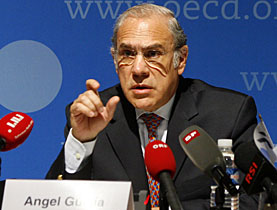
The Organisation for Economic Co-operation and Development (OECD) has welcomed "constructive and transparent dialogue" between the Paris-based body and Switzerland.
swissinfo.ch has obtained an exclusive copy of a letter sent on Thursday by OECD Secretary-General Angel Gurría to Swiss President Hans-Rudolf Merz. The text gives a detailed reply to Swiss concerns and in a tone contrasting with the earlier war of words.
In his letter, the head of the OECD recalled that he had told the Swiss authorities: “We want to help: but please, don’t kill the messenger, we are part of the solution, not the problem.”
Gurría’s remarks were in reply to a letter sent to him on April 28 by the Swiss president, which demanded “fairness, transparency and equal terms”.
On April 2 the OECD published three lists in response to a request from world leaders looking for ways to tighten up on financial regulation at the London G20 summit. It placed Switzerland on a “grey” list of countries considered to only partially respect the body’s criteria in tax matters.
Two weeks before the G20 summit the Swiss government decided to ease banking secrecy rules and adopt OECD fiscal standards in the hope that it would feature on the “white” list. The move came amid increasing international pressure, in particular by the United States, Germany and France.
Swiss politicians, business leaders and the financial community were angry that Switzerland was named on the grey list despite making promises to reform.
Detailed answers
Gurría’s letter contains detailed answers to each of the questions outlined in Merz’s letter.
As to why Switzerland was not warned earlier that it could end up on a grey list, despite being an OECD member, Gurría responded: “The OECD publishes, on a daily basis, information relevant to one or more of our Member countries, without formally asking for their consent.”
This allows him to maintain “the independence, credibility and authority” of the organisation, the secretary-general noted.
He added that the OECD’s actions were “fully consistent with the discharge of our duty”, that the information was already public and the organisation had “repeatedly informed” the Swiss government about its actions since October 2008.
Too late
Gurría said he welcomed the “positive development” that Switzerland had adopted the OECD’s Exchange of Tax Information standard, as set out in article 26 of the OECD Model Tax Convention. He added that he had shared this position with the British Chancellor of the Exchequer Alistair Darling.
Yet Switzerland was well aware that in the months before the G20 summit the international community’s tolerance levels regarding tax evasion were “exhausted”, added Gurría.
And although Swiss willingness to ease banking secrecy existed, it was only expressed a few days before the summit, which made it difficult to be realised.
Gurría said the G20 countries had stressed the fact that the financial crisis had put the issue of cooperation on tax matters in a different perspective, on top of long-standing concerns of money laundering, terrorism and organised crime, but “Switzerland does not deserve to be mentioned in that context”.
Open questions
In his letter Merz requested clarification of “open questions” relating to the OECD, in particular how countries had been selected for the grey list.
The secretary-general replied that the OECD’s Global Tax Forum had assessed 84 “jurisdictions” for a survey published on April 2. This covered all OECD countries, observer countries to the Committee on Fiscal Affairs, states identified by the OECD in 2000 as tax havens and financial centres in the forum’s 2004 Berlin report.
According to Gurría, Switzerland responded to questionnaires for the survey between 2004-2008 and provided updates.
“Switzerland has had equal access to all the information available on the same basis as the other participating countries,” he wrote.
As to the actual qualitative and quantitative criteria used to compile the grey list, Gurría said the starting point had been whether the state had endorsed or agreed to implement article 26. Another criterion had been if the state had signed 12 or more tax double-taxation accords with other governments.
The secretary-general noted that the signing of 12 or more agreements as a basis for assessing substantial implementation of the standard had been discussed in 2008 by the OECD’s Forum on Harmful Tax Practices and communicated to the 84 states surveyed.

More
OECD
Other G20 countries?
Merz had also asked why certain G20 members had not been included in the grey list. This was a reference to offshore tax havens under British control and the US states of Delaware and Florida.
Gurría assured him that there was a “global movement” to address cross border tax evasion.
“Prime Minister Gordon Brown has written to all the jurisdictions related to the UK, encouraging them to implement the standard by the next meeting of the G20 in September,” he wrote.
“The US government has very clearly and firmly come out in favour of the adoption of the [OECD] standard, and Congress is considering sanctions against those that don’t do so.”
But he confirmed that certain G20 members had not been included in the April 2 progress report, as they had not been covered in any of the Global Forum surveys so far.
The secretary-general noted that Switzerland would have ample opportunity to discuss things further at the OECD’s Forum on Harmful Tax Practices on Wednesday and Thursday and at the Committee of Fiscal Affairs on June 28-29.
“Now that all OECD countries have endorsed the standards, it is very much in our collective interest to ensure that there is an effective implementation,” Gurría concluded.
Andrea Ornelas, swissinfo.ch
The Swiss government in March decided to ease banking secrecy amid a threat of sanctions by major powers.
It offered to renegotiate double-taxation accords to bring them into line with OECD standards to combat tax fraud.
The OECD wants so-called tax havens to conclude at least 12 fiscal accords by the end of the year.
Switzerland has double-taxation accords with more than 70 countries.
Negotiations are underway with the US, Japan and Poland. Twenty-three countries have shown an interest in amended fiscal accords, including Germany, Britain and Argentina.

In compliance with the JTI standards
More: SWI swissinfo.ch certified by the Journalism Trust Initiative
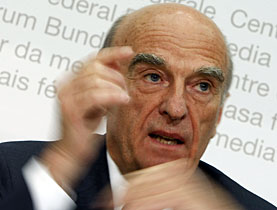
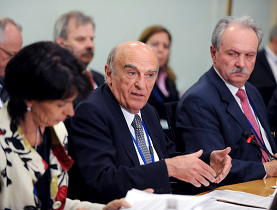
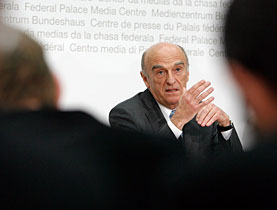
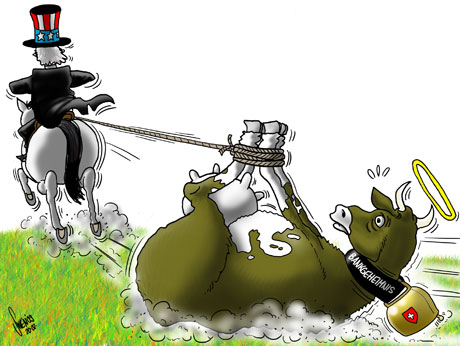
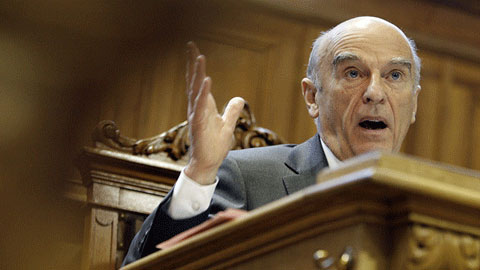
You can find an overview of ongoing debates with our journalists here. Please join us!
If you want to start a conversation about a topic raised in this article or want to report factual errors, email us at english@swissinfo.ch.